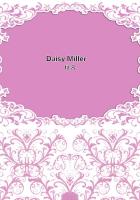When it does not let him sleep, it is a flame that sends up no smoke; when it is opposed by counsel and advice, it is a fire that rages the more by the winds blowing upon it. Upon the dying of a tree, in which he had cut his loves, he observes that his written flames had burnt up and withered the tree. When he resolves to give over his passion, he tells us that one burnt like him for ever dreads the fire. His heart is an AEtna, that, instead of Vulcan's shop, encloses Cupid's forge in it. His endeavouring to drown his love in wine is throwing oil upon the fire. He would insinuate to his mistress that the fire of love, like that of the sun, which produces so many living creatures, should not only warm, but beget.
Love in another place cooks Pleasure at his fire. Sometimes the poet's heart is frozen in every breast, and sometimes scorched in every eye. Sometimes he is drowned in tears and burnt in love, like a ship set on fire in the middle of the sea.
The reader may observe in every one of these instances that the poet mixes the qualities of fire with those of love; and in the same sentence, speaking of it both as a passion and as real fire, surprises the reader with those seeming resemblances or contradictions that make up all the wit in this kind of writing.
Mixed wit, therefore, is a composition of pun and true wit, and is more or less perfect as the resemblance lies in the ideas or in the words. Its foundations are laid partly in falsehood and partly in truth; reason puts in her claim for one half of it, and extravagance for the other. The only province, therefore, for this kind of wit is epigram, or those little occasional poems that in their own nature are nothing else but a tissue of epigrams. I cannot conclude this head of mixed wit without owning that the admirable poet, out of whom I have taken the examples of it, had as much true wit as any author that ever wrote; and indeed all other talents of an extraordinary genius.
It may be expected, since I am upon this subject, that I should take notice of Mr. Dryden's definition of wit, which, with all the deference that is due to the judgment of so great a man, is not so properly a definition of wit as of good writing in general. Wit, as he defines it, is "a propriety of words and thoughts adapted to the subject." If this be a true definition of wit, I am apt to think that Euclid was the greatest wit that ever set pen to paper. It is certain there never was a greater propriety of words and thoughts adapted to the subject than what that author has made use of in his Elements. I shall only appeal to my reader if this definition agrees with any notion he has of wit. If it be a true one, I am sure Mr. Dryden was not only a better poet, but a greater wit than Mr. Cowley, and Virgil a much more facetious man than either Ovid or Martial.
Bouhours, whom I look upon to be the most penetrating of all the French critics, has taken pains to show that it is impossible for any thought to be beautiful which is not just, and has not its foundation in the nature of things; that the basis of all wit is truth; and that no thought can be valuable of which good sense is not the groundwork. Boileau has endeavoured to inculcate the same notion in several parts of his writings, both in prose and verse.
This is that natural way of writing, that beautiful simplicity which we so much admire in the compositions of the ancients, and which nobody deviates from but those who want strength of genius to make a thought shine in its own natural beauties. Poets who want this strength of genius to give that majestic simplicity to nature, which we so much admire in the works of the ancients, are forced to hunt after foreign ornaments, and not to let any piece of wit of what kind soever escape them. I look upon these writers as Goths in poetry, who, like those in architecture, not being able to come up to the beautiful simplicity of the old Greeks and Romans, have endeavoured to supply its place with all the extravagancies of an irregular fancy. Mr. Dryden makes a very handsome observation on Ovid's writing a letter from Dido to AEneas, in the following words:
"Ovid," says he, speaking of Virgil's fiction of Dido and AEneas, "takes it up after him, even in the same age, and makes an ancient heroine of Virgil's new-created Dido; dictates a letter for her just before her death to the ungrateful fugitive, and, very unluckily for himself, is for measuring a sword with a man so much superior in force to him on the same subject. I think I may be judge of this, because I have translated both. The famous author of 'The Art of Love' has nothing of his own; he borrows all from a greater master in his own profession, and, which is worse, improves nothing which he finds. Nature fails him; and, being forced to his old shift, he has recourse to witticism. This passes indeed with his soft admirers, and gives him the preference to Virgil in their esteem."Were not I supported by so great an authority as that of Mr. Dryden, I should not venture to observe that the taste of most of our English poets, as well as readers, is extremely Gothic. He quotes Monsieur Segrais for a threefold distinction of the readers of poetry; in the first of which he comprehends the rabble of readers, whom he does not treat as such with regard to their quality, but to their numbers and the coarseness of their taste. His words are as follows: "Segrais has distinguished the readers of poetry, according to their capacity of judging, into three classes." [He might have said the same of writers too if he had pleased.] "In the lowest form he places those whom he calls Les Petits Esprits, such things as our upper-gallery audience in a playhouse, who like nothing but the husk and rind of wit, and prefer a quibble, a conceit, an epigram, before solid sense and elegant expression.















